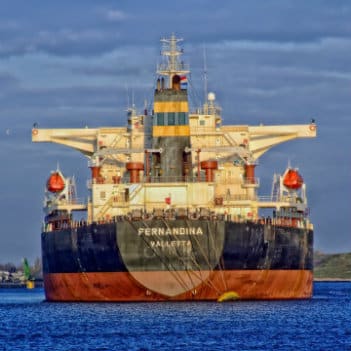Maritime workers in New Jersey may have many questions after suffering a work injury:
We can help answer your work injury concerns in a free consultation. If you chose to retain the services of our experienced offshore injury attorneys, you will owe no legal fees unless you win your case.
With it’s proximity to the Atlantic Ocean, New Jersey is in a prime location for the trade of various goods, products, and cargo.
Thousands of New Jersey residents work throughout the state’s various seaports, including longshore workers, dock and harbor workers, ship crew members, and many other maritime employees. These workers all play key roles in keeping international and interstate commerce running smoothly on the East Coast.
Maritime work can be personally and financially rewarding, but it can also be dangerous. Many of these positions involve physically demanding labor and working in hazardous conditions – making the risk of injury higher than in most other industries.
While these risks are often seen as “just a part of the job”, many maritime and offshore accidents are preventable and only occur because of the negligence of a co-worker, employer, or the owner of the vessel. However, regardless of who was at fault, victims of maritime accidents often have the right to compensation for their injuries. If a worker is killed on the job, surviving dependents may file a compensation claim on their behalf.
Which type of compensation you qualify for depends exclusively on the facts of your case. It is highly recommended to discuss your claim with a legal professional with experience in these types of personal injury and wrongful death claims.
For more information, visit: https://legalherald.com/offshore-injury/jones-act/


When a maritime workers gets hurt on the job, they deserve to feel financially secure until they can return to work. Without these workers, the American economy as we know it would not be able to function. It’s important that they’re protected when a workplace accident prevents them from returning to work.
Depending on the nature of your job duties as a maritime worker, you may be entitled to benefits under either the Jones Act or the Longshore and Harbor Workers’ Compensation Act (LHWCA). These acts each have different rules about filing a claim. While LHWCA claims are no-fault and don’t allow you to hold your employer liable for negligence, Jones Act claims do allow you to sue your employer if their negligence contributed to your injury.
The state of New Jersey has 14 ports which process domestic and international cargo loads at various terminals. Ports in the northern section of the state are generally run by the Port Authority of New York and New Jersey, while those in the southern section are usually run by local agencies.
The Port of Camden is run by the South Jersey Port Coporation (SJPC). The SJPC is known for handling breakbulk cargos and specializes in wood and steel products. This port contains two terminals: the Beckett Street Terminal and Broadway Terminal. Several hundred international and domestic cargo ships move through the port each year, transporting millions of tons of cargo.
The Port Authority of New York and New Jersey oversees the Port of Newark. This is one of the most important ports in the country, as it’s the main container ship facility for cargoes entering and leaving New York City and the rest of the northeastern part of the country. Popular imported goods at this port include furniture, women’s and infant’s clothing, and beer. Exported goods include paper, carbon, automobiles, metal scap, and crepe.
Located in Gloucester City, this port terminal is operated by Gloucester Terminals LLC. This terminal is ranked #1 in the US for the capacity to store refrigerated goods, and many perishable products pass through this port for that reason. Other common cargoes include forest products, steel, and containers.
If you’ve recently been injured while working on or near the water, you may be wondering which benefit system applies to you. Depending on where you spend a significant amount of time working, you may be eligible for one of the following two claims:
If you spend at least 30% of your work hours in the service of a vessel on navigable waters, you are covered under the Jones Act. This Act provides maintenance and cure benefits for any injury, which help pay for living expenses and medical bills. Additionally, you can sue your employer if any form of negligence played a role in your injury, including mistakes by co-workers or your employer’s failure to keep your work vessel safe. Vessel owners can also be held liable if their vessels contain an unsafe or defective condition, also known as being unseaworthy.
If you work in a maritime setting but you’re not covered under the Jones Act, then you are most likely covered by the Longshore and Harbor Workers’ Compensation Act. These benefits provide compensation for lost wages, medical expenses, vocational rehabilitation services, and other injury-related expenses. Dock and harbor workers, longshoremen, stevedores, and others who primarily work near the water are usually covered under this Act.
If you’ve recently suffered an injury as a maritime or offshore worker, it’s important to be aware of the challenges you may face. A serious injury can be costly, and the expenses can quickly become unmanageable, especially if you’ve been unable to return to work. While legislation like the Jones Act and LHWCA are supposed to protect injured maritime workers, the process of filing for compensation can be complicated.
In either type of claim, you should be prepared to deal with your employer’s insurance company and their team of lawyers. The primary focus of insurance companies is to deny as many claims as they can, so that they can boost their profits as much as possible. In order to give yourself the best chance in court against these companies and their lawyers, it’s usually wise to have an experienced maritime work injury lawyer on your side.
Continue Reading:

 info@legalherald.com
info@legalherald.com